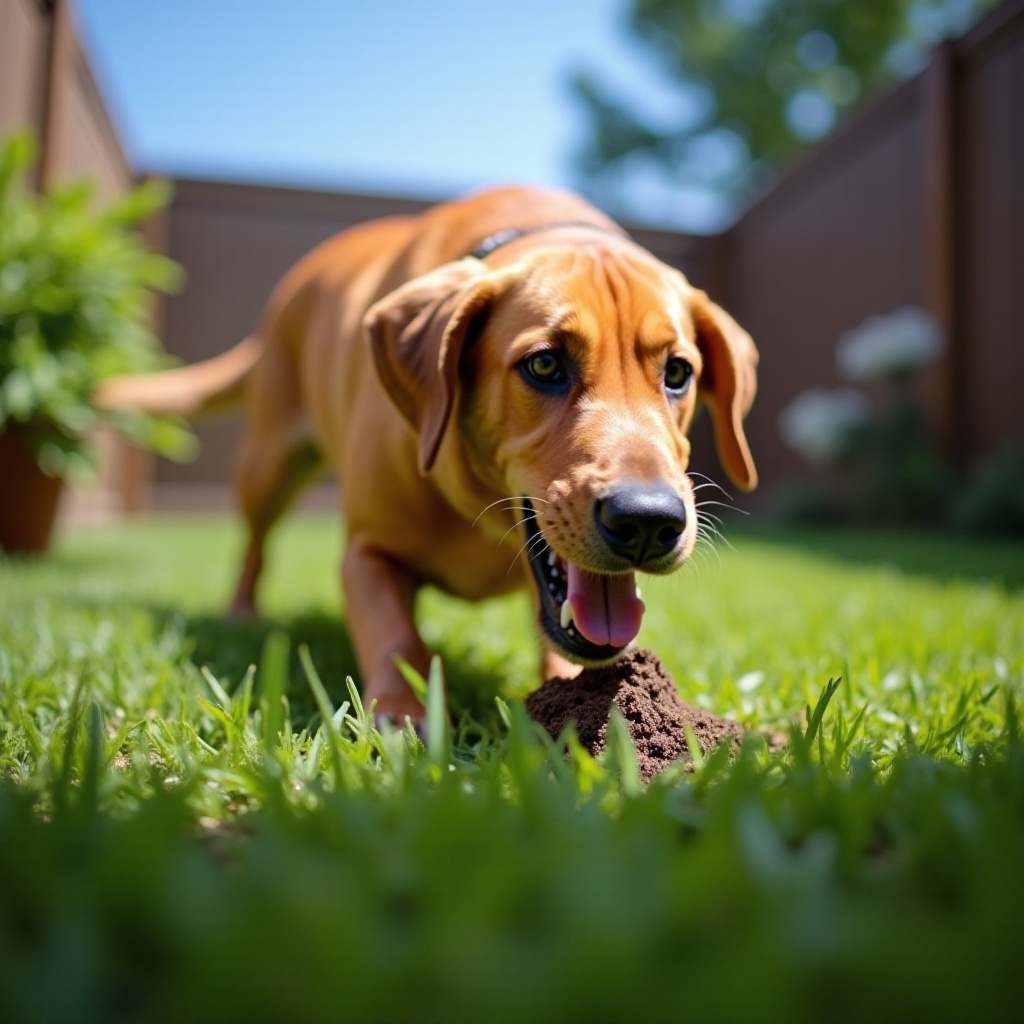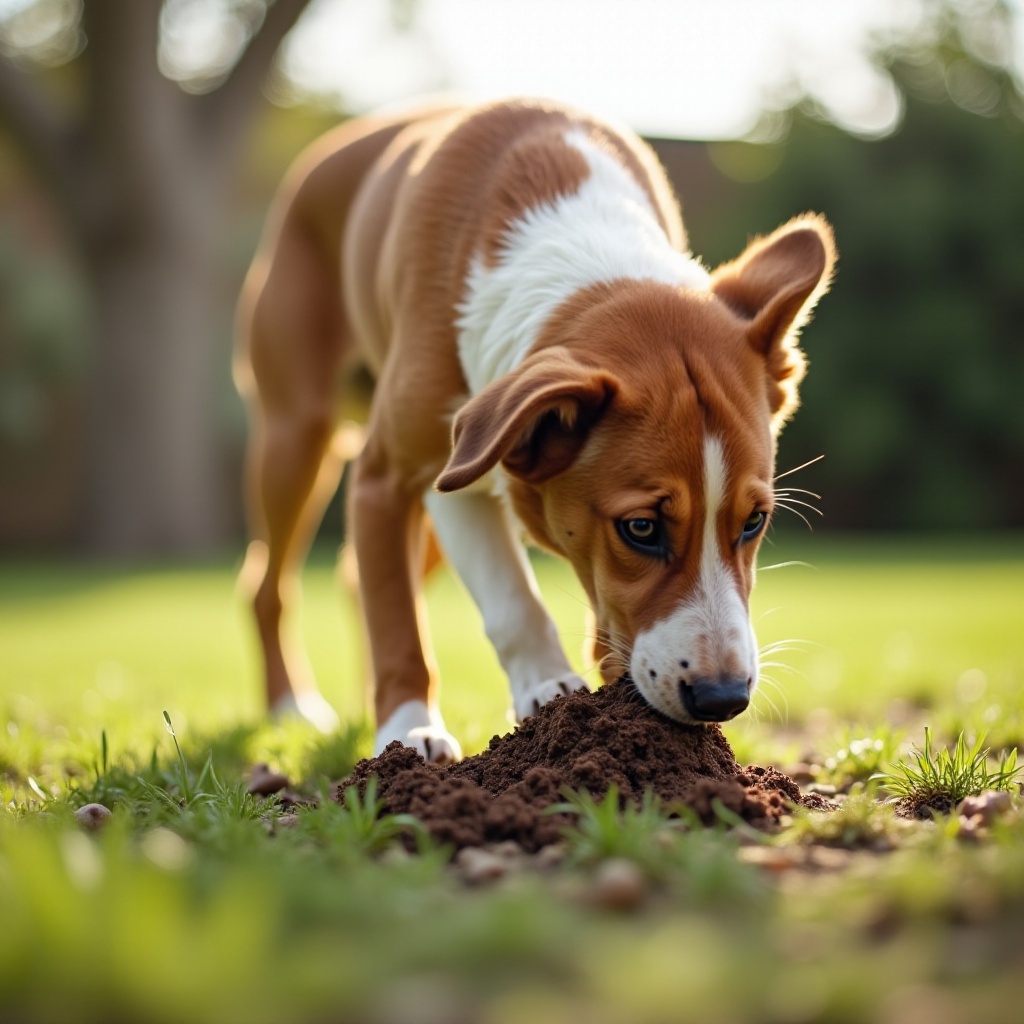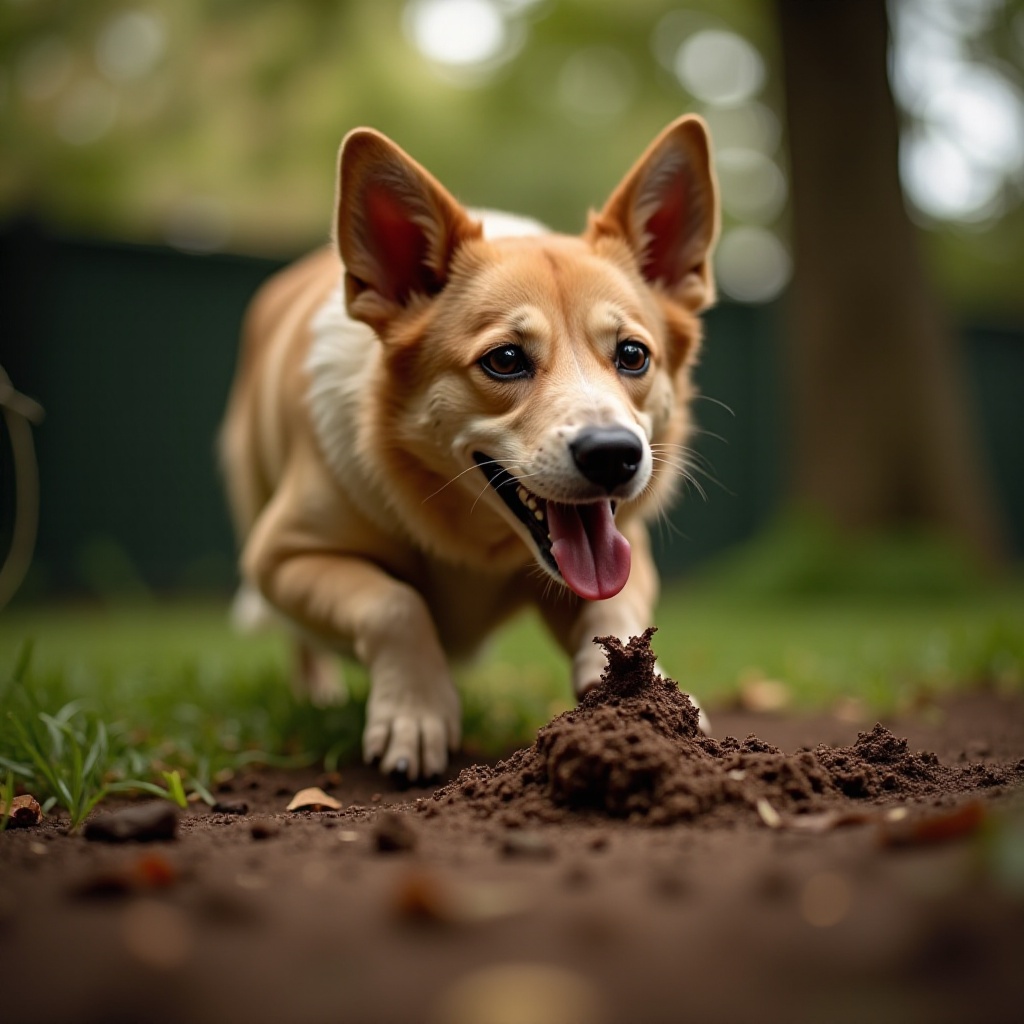Introduction
Dogs exhibit various fascinating behaviors, one of which involves covering their poop. This seemingly simple act can be puzzling for many dog owners. Uncovering the reasons behind this behavior is critical for understanding your pet and ensuring their well-being. This blog dives into the historical and evolutionary background, the common reasons behind this behavior, and offers insights into how you can address it through training and behavior aids.

Historical and Evolutionary Background
Dogs have a rich history that spans thousands of years. Understanding their behavior requires looking at their ancestry and evolutionary traits. Wild dogs, like wolves, often cover their poop to avoid attracting predators or rival packs. This instinctual behavior has persisted through generations, even though domesticated dogs may not face the same threats.
During the evolutionary timeline, dogs had to develop several survival instincts. Covering their poop helped mask their scent from other predators, ensuring their safety and the safety of their young. This trait, deeply embedded in their genetic code, can still be observed in many dogs today. Although your pet may not have the same survival concerns, their behavior is a nod to their wild ancestors.
Common Reasons Why Dogs Cover Their Poop
Different dogs cover their poop for various reasons. Here are some common explanations:
- Instinctual Behavior: As mentioned, this action is a vestige of their wild ancestors. Even without the need to hide from predators, the instinct persists.
- Territoriality: Some dogs cover their poop to avoid leaving scent marks that can be detected by other dogs. This behavior can be a sign of a dog’s instinct to protect their territory.
- Privacy: Dogs might seek privacy when relieving themselves. Covering their waste can be a way of creating a secluded area within their environment.
- Learned Behavior: Dogs are observant creatures. If they’ve observed other dogs covering their poop, they may replicate this behavior.
- Owner Preferences: Some dog owners train their pets to cover their poop as part of house-training. This practice can reduce odor and help maintain a clean living environment.
- Environmental Influences: The surroundings can impact your dog’s behavior. If they are in a place where other animals are present, they might instinctively cover their poop to avoid attracting attention.

Behavioral Analysis
Analyzing your dog’s behavior is crucial in determining the exact cause of their actions. Observing your pet in different scenarios can provide insight.
When your dog covers their poop, notice if it happens more frequently in certain environments or only after specific triggers. Document these instances to recognize patterns. Behavioral analysis isn’t limited to physical actions; it’s also important to consider emotional states. Stress, anxiety, or fear can cause changes in a dog’s bathroom habits. Hence, understanding the context of their actions will help identify if their behavior stems from instinct, habit, or an emotional state.

Training and Behavior Aids
Training your dog to manage or alter this behavior involves patience and consistency. Here are some methods:
- Positive Reinforcement: Reward your dog for not covering their poop. Treats or verbal praise can reinforce the preferred behavior.
- Consistent Routine: Establish a regular bathroom routine for your dog. This consistency can help manage their habits and reduce unnecessary covering of their poop.
- Behavioral Training: Consider professional training if the behavior seems compulsive. A behaviorist can provide personalized strategies.
- Environment Control: Maintain a clean yard and remove poop promptly. This reduces the need for your dog to cover it and creates a hygienic space.
- Relaxation Techniques: If stress or anxiety triggers this behavior, relaxation techniques such as regular exercise, interactive play, and calming environments can help.
Regularly assessing and addressing the root cause of this behavior through a combination of the above techniques can improve your dog’s overall well-being.
Conclusion
Understanding why dogs cover their poop sheds light on their evolutionary traits and daily experiences. While the behavior might seem odd, it’s deeply rooted in their instincts. From managing territory to seeking privacy, various factors play a role. With careful observation, training, and the right aids, you can better understand and address your dog’s unique actions.
Frequently Asked Questions
Why do some dogs not cover their poop?
Some dogs may not cover their poop due to a lack of instinctual drive or because they’ve learned from their environment that it’s unnecessary. Each dog is unique, and variations in behavior are normal.
Is it normal for dogs to cover their poop in the house?
No, it is not typical behavior for dogs to cover their poop indoors. This could indicate an underlying issue such as stress, anxiety, or improper house training.
How can I train my dog to stop covering their poop?
You can use positive reinforcement, establish a consistent bathroom routine, seek professional training, keep the environment clean, and address any potential stressors to help your dog stop covering their poop.
